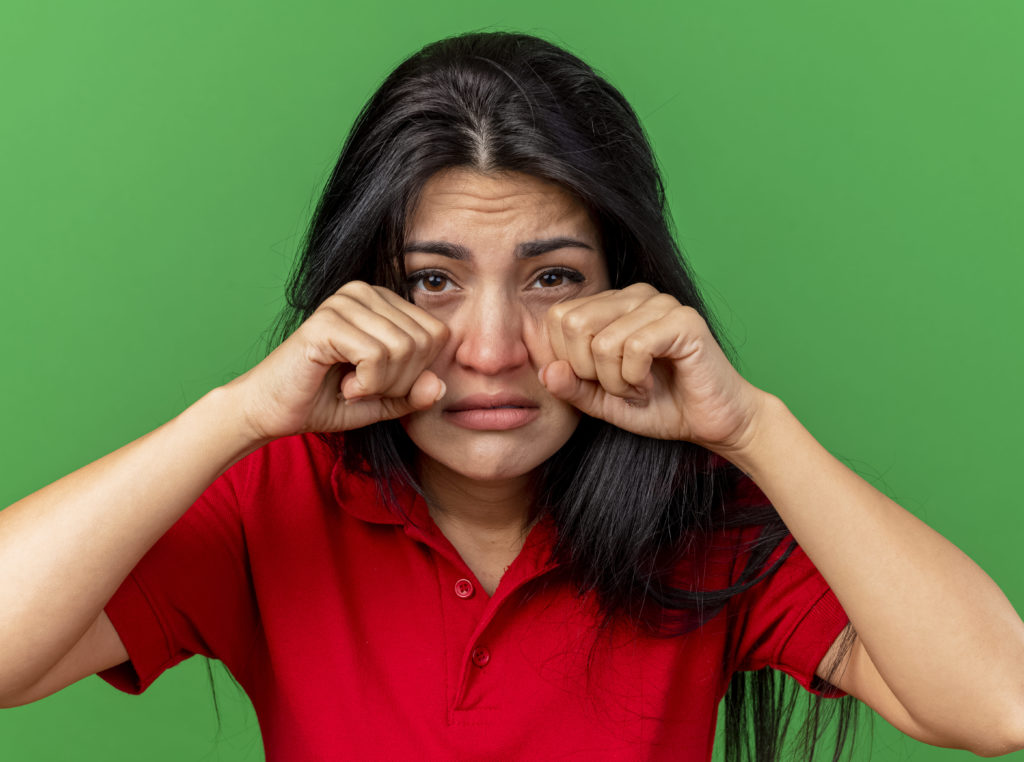
“Dry eyes can be a significant nuisance. While they can be felt at any time of the day, many people experience greater discomfort at night, resulting in interrupted sleep and discomfort upon waking and opening their eyes. In this comprehensive guide, we will explore the topic of dry eyes upon awakening and how to understand and alleviate it. We will investigate the causes, symptoms, and effective ways to manage and relieve this condition, ensuring you enjoy a peaceful and restful sleep.
Dry Eyes at Night
Dry eyes at night refer to a condition in which your eyes do not produce enough tears or have poor tear quality while you sleep. This can lead to a range of uncomfortable symptoms, such as a gritty sensation, redness, itching, and blurry vision upon waking. Understanding the causes and solutions for this condition is crucial for those seeking relief.
Common Causes of Dry Eyes at Night
- Environmental Factors
Adverse environmental conditions, such as low humidity or excessive wind, can contribute to dry eyes at night. - Aging
As we age, tear production tends to decrease, making older adults more susceptible to dry eyes. - Medications
Certain medications, such as antihistamines and antidepressants, can reduce tear production and cause dry eyes at night. - Medical Conditions
Conditions like Sjögren’s syndrome and rheumatoid arthritis are associated with dry eyes, which can worsen at night. - Screen Use
Excessive use of digital screens, whether on computers or smartphones, can reduce the frequency of blinking, leading to dry eyes at night. - Dry Eye Syndrome
Dry eye syndrome is a chronic condition in which the eyes cannot maintain an adequate tear film to stay lubricated and comfortable. This can result in dry eyes at night and other times of the day. If you suspect you may have this syndrome, it is essential to seek the opinion of an eye care professional. Treatment may include artificial tears, lifestyle changes, and, in severe cases, specific medications to improve tear production and reduce inflammation.
Recognizing the Symptoms
Identifying the symptoms of dry eyes at night is essential for timely intervention:
Gritty Sensation: A feeling of foreign particles in the eye.
Redness: Red eyes are a common symptom.
Itching: Irritating itching that can be hard to resist.
Blurry Vision: Vision may be temporarily affected upon waking.
Excessive Tearing: Paradoxically, dry eyes can lead to excessive tearing.
Alleviating Dry Eyes at Night
Treating nighttime dry eyes involves a multifaceted approach to ensure lasting relief. Here are some effective strategies:
- Use a Humidifier
Adding moisture to the air with a humidifier can help combat dryness caused by low humidity. - Stay Hydrated
Drinking enough water during the day ensures your body can produce an adequate amount of tears. - Blink Regularly
Be mindful of blinking while using digital devices to prevent your eyes from drying out. - Warm Compresses
Applying a warm compress to closed eyes can help stimulate tear production and alleviate discomfort. - Lubricating Eye Drops
Over-the-counter lubricating eye drops can provide instant relief by replenishing moisture. - Lubricating Gel
An effective treatment for dry eyes at night is the use of lubricating eye gel. These gels are thicker than standard artificial tears and provide increased moisture and protection throughout the night. Applying a small amount of gel before bedtime can help keep the eyes lubricated and reduce nighttime discomfort. It is important to follow the manufacturer’s instructions and consult an eye care professional before using any new product on your eyes. - Medications
In severe cases, your doctor may prescribe other medications to treat underlying conditions contributing to dry eyes.
FAQs
Can nighttime dry eyes be a sign of a more serious condition?
In some cases, yes. Chronic nighttime dry eyes can indicate an underlying health problem, so it is essential to consult a healthcare professional for a comprehensive evaluation.
Are there lifestyle changes that can reduce the risk of nighttime dry eyes?
Absolutely. Simple habits like taking screen breaks, staying hydrated, and avoiding excessive caffeine and alcohol consumption can help prevent nighttime dry eyes.
Is it common to have dry eyes at night?
Yes, many people experience dry eyes at night, but the severity and causes can vary widely.
Are there home remedies to alleviate nighttime dry eyes?
Yes, using a humidifier, warm compresses, and artificial tears are some effective home remedies. However, consult a healthcare professional if symptoms persist.
Can allergies worsen nighttime dry eyes?
Allergies can exacerbate dry eyes. Managing allergies with medications and avoiding allergens can help alleviate this issue.
How can I improve my sleep quality if I have dry eyes at night?
Maintain good eye hygiene, use recommended lubricating eye drops before bedtime to keep your eyes moist during the night, and follow your eye doctor’s recommendations.
In summary, nighttime dry eyes can be an uncomfortable condition, but with proper knowledge and an appropriate approach, relief is possible, allowing you to wake up feeling refreshed and ready to face the day. Remember that if you experience persistent symptoms of nighttime dry eyes, it is essential to consult an eye care professional for a more detailed evaluation and specific recommendations.
To enhance the quality of your sleep when you have nighttime dry eyes, here are some key guidelines:
Maintain good eye hygiene by gently cleaning your eyelids and lashes.
Use lubricating eye drops recommended by your eye care professional before bedtime to keep your eyes hydrated during the night.
Follow your doctor’s recommendations for treatments and lifestyle changes.
With these care practices and a proactive approach, you can mitigate the discomfort of nighttime dry eyes and wake up each morning feeling more rested and ready to tackle the day. Take care of your eyes and enjoy restful sleep!”